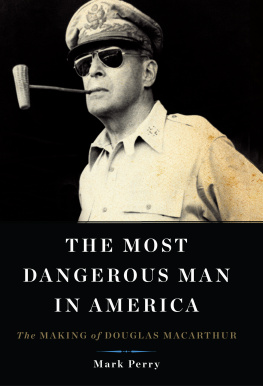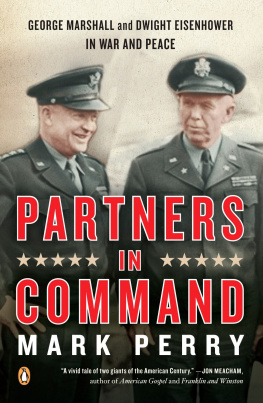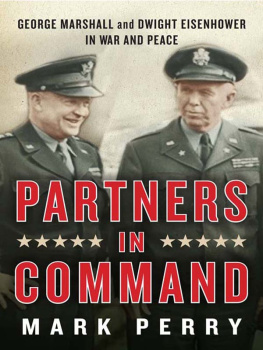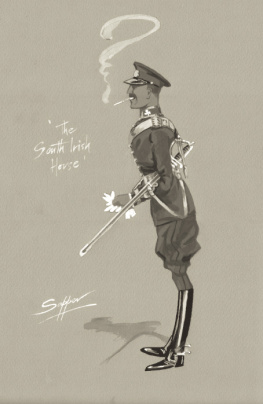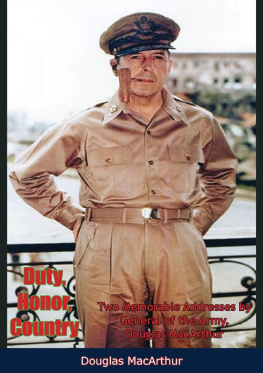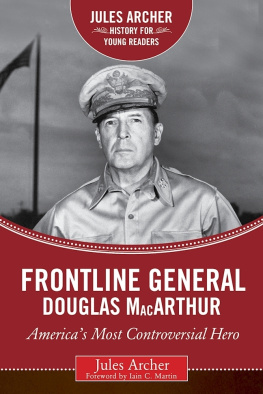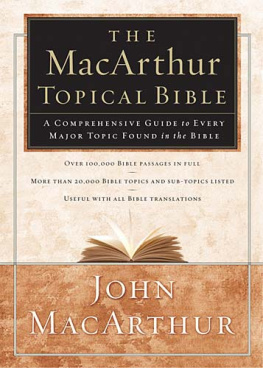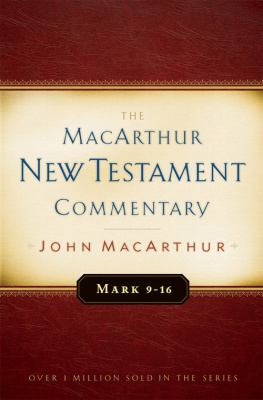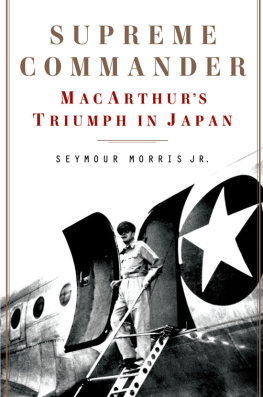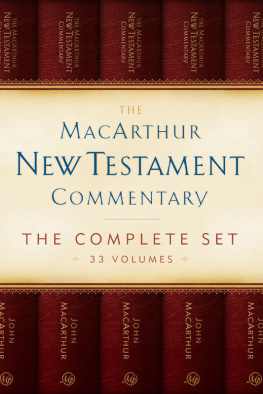All rights reserved. Printed in the United States of America. No part of this book may be reproduced in any manner whatsoever without written permission except in the case of brief quotations embodied in critical articles and reviews. For information, address Basic Books, 250 West 57th Street, 15th Floor, New York, NY 10107.
Books published by Basic Books are available at special discounts for bulk purchases in the United States by corporations, institutions, and other organizations. For more information, please contact the Special Markets Department at the Perseus Books Group, 2300 Chestnut Street, Suite 200, Philadelphia, PA 19103, or call (800) 810-4145, ext. 5000, or e-mail special.markets@perseusbooks.com.
A CIP catalog record for this book is available from the Library of Congress.
In memory of General Bruce Palmer Jr. (19132000)
Some might consider him as too fond of fame; for the desire for glory clings even to the best men longer than any other passion.
We must tame these fellows, and make them useful to us.
Franklin D. Roosevelt
On the afternoon of July 29, 1932just weeks after winning the Democratic Partys nomination for the presidencyNew York governor Franklin Roosevelt was having lunch at the Governors Mansion in Albany. Seated around the table were his wife Eleanor, his trusted secretaries Missy Lehand and Grace Tully, and Graces sister Paula. Joining this group was Rexford Tugwell, the brilliant Columbia University agricultural economist who had become an important Roosevelt advisor. We had finished with lunch and Roosevelt was moving into his wheelchairhe had appointmentswhen the steward came in and whispered in his ear, Tugwell recalled. Roosevelt listened closely to the steward and nodded his head. A slight smile crept over his face: Louisiana senator Huey Long, who had kept the South in Roosevelts column during the Democratic convention, was on the telephone. Roosevelt turned to his guests. You should listen to this, he said. The steward produced the telephone and Roosevelt picked up the mouthpiece. Hello, Huey, how are you?
Roosevelts question was followed by an outburst from Long, who accused Roosevelt of listening to the bigwigslike financiers Owen Young (that stuffed shirt) and Bernard Baruch. God damn it, Frank, Long said, whod you think got you nominated? Long was breathless.
Roosevelt peered over his glasses at his guests, then turned back to his conversation. Well, Roosevelt said, you had a lot to do with it, Huey.
Long exploded. You sure are forgettin about it as fast as you can. We wont even carry these states down here if you dont stop listenin to those people. You got to turn me loose.
Everybody appreciates all youve done, Roosevelt said, its just not time to start yet. Its better to wait until the election is nearer and people can remember whats been said. There was a momentary silence. We need to plan, Roosevelt added.
Long erupted. Hell with plans, he said. Dont need any plans. Ill carry the country for you, but I cant do it without money.
Roosevelt, unfazed, poked back. You never needed money before; why do you need it now?
This was too much for Long. Damn it, you musta been born yesterday. I know where to get money when Im running for myself. But this aint the same. Im running for you, dont you know that?... Let me come up there. People are goin to feel a lot better if they see me comin out of that big house than those crooks that got us into this mess in the first place.
Roosevelt waited for Long to compose himself. When the Louisiana politician spoke again, there was a sudden sadness in his voice. Did you see what Hoover did to those Bonus boys, Frank? he asked.
Roosevelt had. On the table next to his chair, a copy of the mornings New York Times screamed out its three-column headline: Troops Drive Veterans from Capital. The story detailed a day of chaos in Washington, where troops commanded by Douglas MacArthur had evicted thousands of World War One veterans from their makeshift encampment across the Anacostia River from the U.S. Capitol.
The Bonus Army had congregated in Washington early in the summer seeking the early payment of their bonus from the Great War, protesting peacefully while lobbying Congress. But President Herbert Hoover ordered MacArthur to turn them out of their encampment. What was supposed to be a peaceful eviction turned into an ugly and bloody incident. A newborn infant had died, asphyxiated by tear gas. Flames rose high over the desolate Anacostia flats at midnight tonight, the Times story began, and a pitiful stream of refugee veterans of the World War walked out of their home of the last two months, going they knew not where.
Roosevelt eyed the headline, thinking of Hoover. Yes, things like that are going to hurt him, he said. Dont you think so?
Long grunted. Damn right, he said. But we got to treat em different. Theres a lot of that kind around, and theyve got friends. Somethins got to be done for em. Long then turned his focus back to the campaign. You ask me up there, Frank. Ill give you some schemes thatll bring in votes.
Roosevelt thanked Long for calling and reassured him that his views were being heard. When he hung up, he let out a long breath. Turning to his guests, he explained his views on Longand how the senator could be placated. Roosevelt would invite Long to the White House, he said, and include him in important meetings. He needs to be patted on the back, he explained. A low chuckle greeted this comment. Roosevelt was surprised. Its all very well for us to laugh over Huey, he said, but we have to remember all the time that hes really one of the two most dangerous men in the country.
Tugwell was puzzled by this and later, as the lunch broke up, turned to Roosevelt. You said Huey was the second most dangerous person, didnt you? he asked. Did I hear it the way you said it?
Roosevelt nodded. You heard right, he said. Huey is only second. The first is Douglas MacArthur.
T ugwell was shocked by Roosevelts comment. Was Douglas MacArthur, an admired war hero, really the most dangerous man in the country? The grandson of a Milwaukee judge (a personal friend of Abraham Lincoln) and the son of Arthur MacArthurwho had received the Medal of Honor for leading his Wisconsin regiment up the face of Missionary Ridge during the Civil WarDouglas MacArthur had followed in his fathers footsteps. At West Point he earned the highest grades of any cadet since Robert E. Lee, served honorably in an early assignment in the Philippines, and then led the famed 42nd Division into the German lines at Cte de Chatillon during the Great War. His battlefield courage resulted in seven Silver Stars. The end of the war brought even greater recognition: In 1919 he was named superintendent of West Point, in 1922 he was appointed commander of the Military District of Manila, and in 1925 he was promoted to major generalthe youngest man, at forty-three, to hold that rank. In 1927, MacArthurs tenure as head of the U.S. Olympic Committee resulted in the U.S. teams winning twenty-four gold medals at the Summer Games in Amsterdam. Named in 1929 the commander of the Philippine Department, he served in that post only briefly before being named army chief of staff by President Hoover. At fifty, MacArthur was the youngest officer in American history to hold that post.

